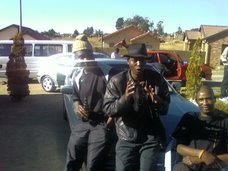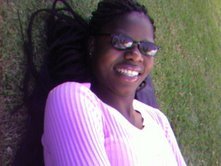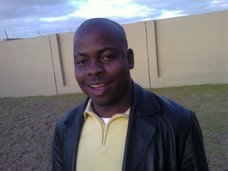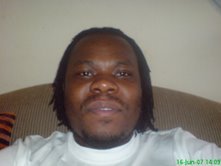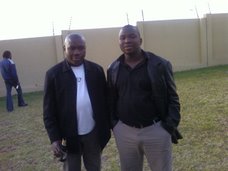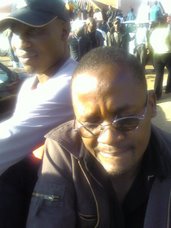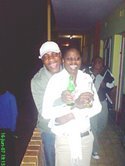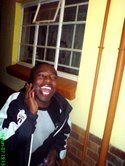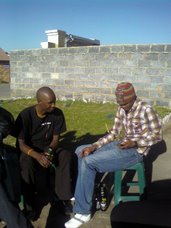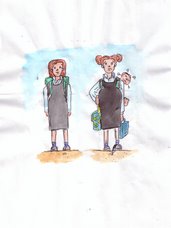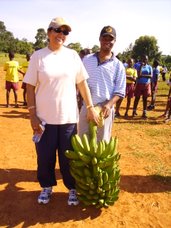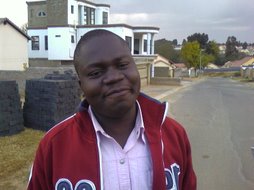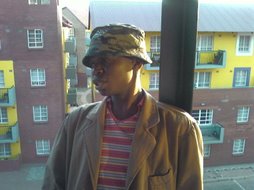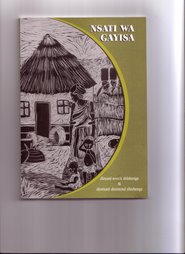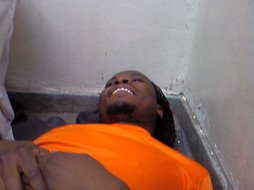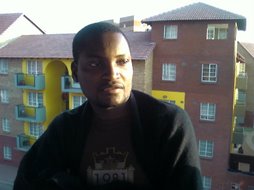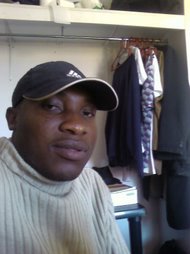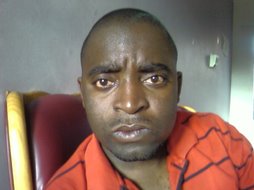This is the series of essays written by learners who were adressing different topics. The profile will also be included at the end of the essay.
NAME: RAUDINAH BALELE
CLASS: GRADE 11
THEME: EDUCATION (LITERACY)
EDUCATIONAL FACT NO 4
SCHOOL: EQINISWENI
TOPIC 2: Many people of our
struggle heroes viewed the ability to read write as window to self development
but also a stepping platform seeking an advancement of opportunities to fight
the apartheid government through literacy education. How can technology be used
for the youth of today to mobilise and encourage them read and write and a
basic tool that can/should be used for the development of themselves and their
communities.
|
Stephen Biko (18
December 1946 – 12 September 1977) was an anti-apartheid activist in South Africa
in the 1960s and 1970s. A student leader who
later founded the Black Consciousness Movement which would
empower and mobilize much of the urban black population. Since his death in
police custody, he has been called a martyr of the
anti-apartheid movement. While living, his writings and activism attempted to
empower black people, and he was famous for his slogan “black is beautiful”,
which he described as meaning: “man, you are okay as you are, begin to look
upon yourself as a human being”. Most youth were inspired by his ideologies in
the 1976 uprisings. Like Kalushi Mahlangu he is one of the celebrated martyrs.
His was to promote better life for his people, especially the black nation. www.sahistory.org.za/people/steve
biko
Leaders of the past have inspired us but the
improvement of education today remain in our hands as young people to come up
with strategies and tactics which will place education at a proper and rightful
place. The challenging process of education today is in a demanding need for
solutions on how technology might assist in the transformation or betterment of
education. Technology can play a vital role in improving education system in
South Africa.
In the classroom it can mobilize and
encourage learners to read and write and moreover to allow them to be more
active with the opportunities brought about by communication and information
technology. Technology that comes with the newly invented gadgets such as cell
phones, computers, iPads etc can help in the self development of individuals
since young persons in our respective communities want to associate themselves
with these new technological gadgets. Poverty and illiteracy will decrease as a
result. The introduction of computers as a learning tool can better prepare
youth for their brighter future and increase achievements in many ways. It is
for this reason that I believe that computers can be a great facilitator in the
process for better and quality education e.g. as learners we download
complicated science experiments and watch educational programs on television
presented by specialists.
My greater interest in researching this topic
made me realized that the information is interesting and make me view an
approach to education in a different perspective. The study shows that with adequate teacher
preparations technology can greatly improve many aspects of the classroom and
learner performance. Technology promotes independence and team work in
addressing fundamental issues of education. In this way, great leaders of
tomorrow can be produced with a powerful knowledge to fight the apartheid
legacy of poverty, illiteracy and lack of skills that are relevant to the economic
development of our country.
Technology in education can further give
opportunities to both teachers and learners to learn from a broader perspective
and learn other skills which will enhance their social cohesion. This is evident
in the words of Malcolm X that, “Education is the passport to the future, for
tomorrow belongs to those who prepare for it today”
Technology can be a ‘force multiplier’ for
educators. An old approach that the teachers are the only source of help in the
classroom has come to an end, learners today can access educational websites,
online tutorials and that will further assist them. Education will not stop at
the end of the school day but it becomes an ongoing thing even in the public
transport such as taxis and trains one can browse on the small gadgets such as
phones. We have access to teachers on television after school and we download
resources on the internet.
Money is always an issue in education and
technology can assist greatly in that regard. Electronic forms are used instead
of papers; e-mail instead of memos; visual labs; electronic textbooks and
thousands of free online resources can save schools money and give learners
excellent educational experiences.
Before the ink in my pen runs dry I would
love to conclude by suggesting that the ability to read and write can be
encouraged by the introduction of technology in the classroom. More money and
thoughts should be invested in implementing technology into the education
system. In this way, advanced opportunities to fight the apartheid legacy left
for us will be revolutionarily transformed. The people who receive better and
quality education are the people who enjoy a better life. So if we want better
life for all as advocated by the African National Congress we must start
seriously integrating technology into the education system. That is the only way
we can start to promote social cohesion. Social cohesion starts with quality
education.
Profile
I am Raudinah Balele, an 18 year-old female
grade 11 learners at Eqinisweni Secondary School. I live in Ivory Park
extension 2. I attended my primary school at P.S Tsosane. I live with my mother
and siblings; 16 years old boy and 14 years old girl. I am the member of Peers with Realistic
Objectives, an organization which promote positive poetry, drama and dances. I
was a perfect at primary and was awarded as “A Best Learner in all learning
Areas” in grade 7 (2008) and the best learner in business economics grade 10
(2011) and scooped three first term academic awards this year. I was nominated
by I-Source Youth Organization for home language (Xitsonga), English and
Business Studies in 2012. I am the cast member of the movie called “Heartless
Fools”. I play Khanyisa. I am a mentor of grade 9 learners for Mathematics,
given this position by Dr Fami from Wits University. I wish to pursue my
studies with Wits University after my matric. I want to be a very successful
Bank manager.

